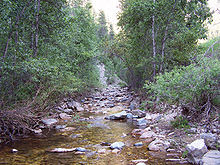For the past five weeks, I’ve been
posting stories of my childhood that carried with them subconscious messages
that affected much of my life. Fortunately, as an adult, I’ve sought
professional counseling.
This
has provided me with the opportunity to recall these events in my life, come to
grips with them, forgive all of us who were involved, recognize the patterns of
thought that evolved from these events, and decide which of these patterns I
wanted to embrace and which I wanted to abandon. This work continues as I discover new ways these thoughts impact my aging life.
In
an earlier posting I said that today I’d begin sharing some humorous stories
with you. However, I’ve decided that I need a bridge between those
life-changing incidents already shared and the amusing tales that this blog
will highlight throughout March and possibly early April. After that, I hope to
return to convent postings.
In
your comments, some of you praised me as a survivor. So the bridge to connect
the February postings with the March ones is about what helped me survive:
Arthur, my mother, a reoccurring daydream in which I took refuge, and blue.
Arthur
is my imaginary friend from kindergarten. He remained visible to me for many
years and I still, at times, feel his presence. Click here for the posting in
which I introduced him to you.
During
my grade school years, after I got off the bus each afternoon, greeted mom, and
had a snack, I often hiked down to the creek. It was about fifteen feet wide, and
its water ran swiftly, emptying into the Missouri River. I’d sit on a large
slab of rock with a boulder behind me.
Arthur would sit next to me and often I’d rest my head against his tawny sides. He is a gentle lion whose eyes are deep wells of compassion and understanding. While I was never able to tell any adult about the molestation happening in my life, I could share everything with Arthur. Again and again he assured me that I was a good little girl.
Arthur would sit next to me and often I’d rest my head against his tawny sides. He is a gentle lion whose eyes are deep wells of compassion and understanding. While I was never able to tell any adult about the molestation happening in my life, I could share everything with Arthur. Again and again he assured me that I was a good little girl.
During
those years, I shared my school day with Mom. She’d help put into perspective
the childish spats between my playmates and me on the playground. We’d discuss
what I was learning. She’d send me to the World Books to find out more and
would get excited with me as I learned new things. She’d tell me about books
she was reading. Always, she made me feel important. Cherished.
The
third bridge to sanity was a daydream. Whenever Dad came home drunk and he and
Mom quarreled, I’d go into my bedroom and lie on the bed. There was no door into
my bedroom, just a curtain hanging within the doorframe, so I could still hear
the arguing, but I didn’t have to watch my father swaying or my mother’s face
redden.
During
that time, I’d retreat into my own mind and lie, not on a bed, but on a
hillside that sloped down into a deep, green valley through which a stream
flowed, meandering to the light-danced sea beyond the hillside.
I’d lie on my back against the fragrant grass and the welcoming loam and look up through the spreading branches of a blossoming apple tree. Cloud wisps accented the blue sky; birds perched on the branches; butterflies landed on my fingers.
I’d lie on my back against the fragrant grass and the welcoming loam and look up through the spreading branches of a blossoming apple tree. Cloud wisps accented the blue sky; birds perched on the branches; butterflies landed on my fingers.
The
sounds of that hillside—birds, their heads cocked, singing about the wheat; the
far sea splashing on the shore; the soughing wind wending its way through the
valley—comforted me. I was a long way from the troubles of home. Safe. Secure.
Always
I could escape to that hillside. To that green valley. To that turquoise sea.
Those
three—Arthur, Mom, and Daydream—helped me survive. I had survived asthma as I
child and so I knew about breathing and distracting myself. I also had a fourth
bridge to peace—blue. Click here for how that color helped me survive.
Next
week—laughter!
Photo of apple blossoms by Dan from
freedigitalphotos.net; photo of lone tree by Archipoch from
freedigitalphotos.net; other photos from Wikipedia.







